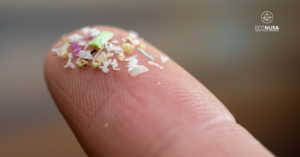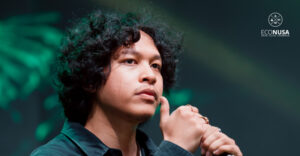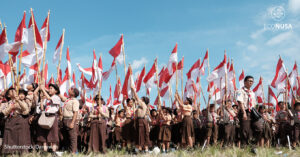
Twenty participants of Elementary level of School of Eco Diplomacy (SED) paid a visit and engaged directly with the environmental watchmen at Sorong Municipality, West Papua, on 23 September 2020. The participants were divided in two groups to visit Mangrove Tourism Site at Klawalu and Sorong Raya Waste Bank (BSSR).
Mangrove Tourism Site in klawalu is managed by Sorong Tourism Office. On daily life, the Development of Tourism, Recreation and Market Section Head, Santoso, is responsible for the tourism site management. He is assisted by church youth to create Tourism Group (Kodarwis). They are assigned to preserve mangrove and assure security of tourists.
Santoso said that mangrove ecosystem was in damaged condition in 2017. Mangrove was taken for firewood. Worse still, the coral surrounding the mangrove forest was also taken as the building materials.
Raead also: Pace Lingkungan: Youth can Bring Enviromental Change
“All stuffs are sold by the community outside the village for personal interests. The effect is indirectly visible but ten years later. Mangrove ecosystem is very important as it is nearby the ocean. It is to prevent from abrasion,” said Santoso.
To prevent from further destruction, Santoso cooperated with Moi Tribe as the customary holder. The chief of Malibela clan, Yonas Malibela, has handed over 5 hectares of mangrove areas that could be managed as tourism destination. Klawalu Mangrove Tourism Spo was officially founded in May 2019. Currently there has been 1 hectare of mangrove areas whose management are collaboratively done by the government and local community.
A participant of SED Sorong, Hilda Patihani, a student of Sorong State Islamic College, said that the collaboration of government and local community in mangrove ecosystem is a collaborative model to replicate. As to her, all stakeholders should play their roles in safeguarding their environment.
“As youngsters, we do not want our mangrove forests destroyed. I will introduce the Klawalu Mangrove Tourism Spot to a wider public. If you visit Sorong, please have a drop by mangrove areas, instead of heading directly to Raja Ampat. I want to call my colleague to plant mangrove so as to be sustainable,” said Hilda.
Read also: Self-reliant Youngster Sufficing Food in Mlaswat Village
Similar experience also took place during the visit to Sorong Raya Waste Bank (BSSR) founded upon Misool Foundation initiative. The participants had a dialogue with BSSR’s Empowerment Division Coordinator, Anggun Aila Nova. Anggun took SED Sorong participants to walk around and sort out the collection of waste.
BSSR calls the surrounding community to sort out domestic waste. They also educate the community that waste could be transformed into economic goods by recycling them into bag, purse and interior ornaments.
The waste has become one of the government and Sorong City people’s concerns. In early 2019, the Minister of Environment and Forestry through Adipura assessor team announced the top ten most unclean cities in Indonesia. Sorong City is one of them. For the reason, to make Sorong clean, it needs participation of all stakeholders.
Read also: Bolstering Food Resilience to Fight Pandemic
The assessment has made Widia Fermina Wenehen, an SED participant and member of Witibi Oil Klamono community, upset. Inspired by her experience when she cleaned up a pile of garbage on the roadside, Widia plans to call the surrounding residents to clean up waste regularly.
“I will start from my own compound. We should have guts to talk to the local Neighborhood Unit Chief (RT) and Community Unit Chief (RW) to have a clean-up cooperation once a week. From the government, it is held once a month. So, we should wait for an instruction. We should be more active,” said Widia.
Editor: V. Arnila Wulandani and Leo Wahyudi S




